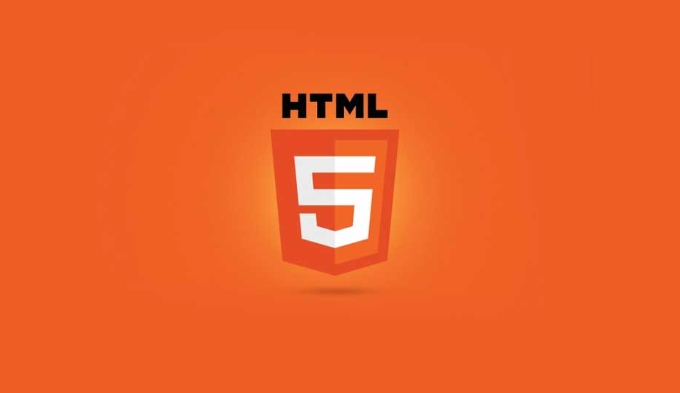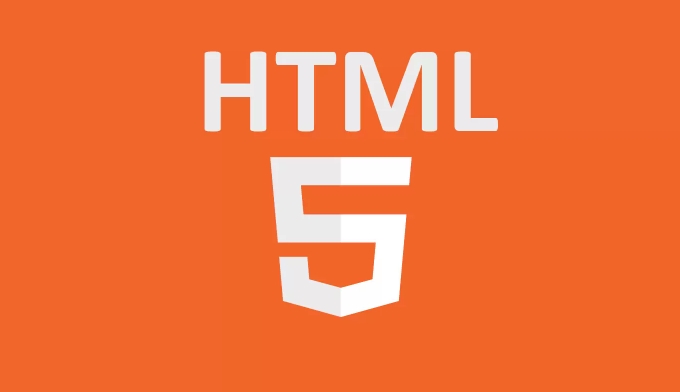The new HTML5 input type improves the form experience, the main methods include: 1. Use email and url types to realize automatic format verification and optimize the mobile keyboard; 2. Use number and range to process numerical input, which are suitable for accurate values ??and sliding selection respectively; 3. Use date series types to call the original date selector to improve time input efficiency. These features reduce the burden of front-end verification, but basic verification still needs to be supplemented by the server. Some types need to be combined with JS libraries to ensure compatibility on old devices.

Forms are the core of web interaction, and the new input types introduced by HTML5 make the form experience smarter and more friendly. They not only improve user experience, but also reduce the burden of front-end verification.

Use email and url input types to improve accuracy
When users need to enter an email or URL, using <input type="email"> or <input type="url"> can bring a more appropriate keyboard layout (especially on mobile devices), and the browser will automatically perform basic format verification.

For example:
<input type="email" placeholder="your.email@example.com"> <input type="url" placeholder="https://example.com">
These types of benefits include:

- Automatically identify whether the input content meets the format
- Pop up a keyboard that is more suitable for input on the mobile side (such as an email keyboard with the @ key)
- Simple verification without additional JavaScript
However, it should be noted that these verifications are only basic and cannot replace server-side inspection.
Use number and range to process numerical inputs
<input type="number"> and <input type="range"> are good choices when you want the user to enter a numeric range or select a value.
For example, let users choose age or rating:
<label>Age: <input type="number" min="0" max="120"></label> <label>Rating: <input type="range" min="1" max="5"></label>
The two are different in applicable scenarios:
-
numberhas up and down adjustment buttons, suitable for precise input -
rangeis more suitable for sliding selection and is more intuitive visually
Pay attention to setting reasonable min and max values, and consider adding step attributes to control the step size.
Simplify time input using date series types
HTML5 provides a variety of date-related input types, such as date , time , datetime-local , month and week . They can call up the native date selector, greatly improving operational efficiency.
Example:
<input type="date"> <!-- Year, Month, Date--> <input type="time"> <!-- Time--> <input type="datetime-local"> <!-- Year, month, day, time-->
These types are particularly suitable for reservations, registrations, filtering and other scenarios that require time information.
What should be noted is:
- The support level of different browsers varies slightly
- Some old devices may appear as normal text boxes
- The output format is usually a standard format, which is convenient for backend parsing.
If the project has high compatibility requirements, it is recommended to combine the JS date library as a downgrade solution.
Basically, these commonly used HTML5 form input types. They are not complex but are easily overlooked. Rational use can significantly improve the ease of use and accuracy of forms.
The above is the detailed content of Utilizing New HTML5 Input Types for Enhanced Forms. For more information, please follow other related articles on the PHP Chinese website!

Hot AI Tools

Undress AI Tool
Undress images for free

Undresser.AI Undress
AI-powered app for creating realistic nude photos

AI Clothes Remover
Online AI tool for removing clothes from photos.

Clothoff.io
AI clothes remover

Video Face Swap
Swap faces in any video effortlessly with our completely free AI face swap tool!

Hot Article

Hot Tools

Notepad++7.3.1
Easy-to-use and free code editor

SublimeText3 Chinese version
Chinese version, very easy to use

Zend Studio 13.0.1
Powerful PHP integrated development environment

Dreamweaver CS6
Visual web development tools

SublimeText3 Mac version
God-level code editing software (SublimeText3)

Hot Topics
 Audio and Video: HTML5 VS Youtube Embedding
Jun 19, 2025 am 12:51 AM
Audio and Video: HTML5 VS Youtube Embedding
Jun 19, 2025 am 12:51 AM
HTML5isbetterforcontrolandcustomization,whileYouTubeisbetterforeaseandperformance.1)HTML5allowsfortailoreduserexperiencesbutrequiresmanagingcodecsandcompatibility.2)YouTubeofferssimpleembeddingwithoptimizedperformancebutlimitscontroloverappearanceand
 What is the purpose of the input type='range'?
Jun 23, 2025 am 12:17 AM
What is the purpose of the input type='range'?
Jun 23, 2025 am 12:17 AM
inputtype="range" is used to create a slider control, allowing the user to select a value from a predefined range. 1. It is mainly suitable for scenes where values ??need to be selected intuitively, such as adjusting volume, brightness or scoring systems; 2. The basic structure includes min, max and step attributes, which set the minimum value, maximum value and step size respectively; 3. This value can be obtained and used in real time through JavaScript to improve the interactive experience; 4. It is recommended to display the current value and pay attention to accessibility and browser compatibility issues when using it.
 Adding drag and drop functionality using the HTML5 Drag and Drop API.
Jul 05, 2025 am 02:43 AM
Adding drag and drop functionality using the HTML5 Drag and Drop API.
Jul 05, 2025 am 02:43 AM
The way to add drag and drop functionality to a web page is to use HTML5's DragandDrop API, which is natively supported without additional libraries. The specific steps are as follows: 1. Set the element draggable="true" to enable drag; 2. Listen to dragstart, dragover, drop and dragend events; 3. Set data in dragstart, block default behavior in dragover, and handle logic in drop. In addition, element movement can be achieved through appendChild and file upload can be achieved through e.dataTransfer.files. Note: preventDefault must be called
 How can you animate an SVG with CSS?
Jun 30, 2025 am 02:06 AM
How can you animate an SVG with CSS?
Jun 30, 2025 am 02:06 AM
AnimatingSVGwithCSSispossibleusingkeyframesforbasicanimationsandtransitionsforinteractiveeffects.1.Use@keyframestodefineanimationstagesforpropertieslikescale,opacity,andcolor.2.ApplytheanimationtoSVGelementssuchas,,orviaCSSclasses.3.Forhoverorstate-b
 HTML audio and video: Examples
Jun 19, 2025 am 12:54 AM
HTML audio and video: Examples
Jun 19, 2025 am 12:54 AM
Audio and video elements in HTML can improve the dynamics and user experience of web pages. 1. Embed audio files using elements and realize automatic and loop playback of background music through autoplay and loop properties. 2. Use elements to embed video files, set width and height and controls properties, and provide multiple formats to ensure browser compatibility.
 What is WebRTC and what are its main use cases?
Jun 24, 2025 am 12:47 AM
What is WebRTC and what are its main use cases?
Jun 24, 2025 am 12:47 AM
WebRTC is a free, open source technology that supports real-time communication between browsers and devices. It realizes audio and video capture, encoding and point-to-point transmission through built-in API, without plug-ins. Its working principle includes: 1. The browser captures audio and video input; 2. The data is encoded and transmitted directly to another browser through a security protocol; 3. The signaling server assists in the initial connection but does not participate in media transmission; 4. The connection is established to achieve low-latency direct communication. The main application scenarios are: 1. Video conferencing (such as GoogleMeet, Jitsi); 2. Customer service voice/video chat; 3. Online games and collaborative applications; 4. IoT and real-time monitoring. Its advantages are cross-platform compatibility, no download required, default encryption and low latency, suitable for point-to-point communication
 How to check if a browser can play a specific video format?
Jun 28, 2025 am 02:06 AM
How to check if a browser can play a specific video format?
Jun 28, 2025 am 02:06 AM
To confirm whether the browser can play a specific video format, you can follow the following steps: 1. Check the browser's official documents or CanIuse website to understand the supported formats, such as Chrome supports MP4, WebM, etc., Safari mainly supports MP4; 2. Use HTML5 tag local test to load the video file to see if it can play normally; 3. Upload files with online tools such as VideoJSTechInsights or BrowserStackLive for cross-platform detection. When testing, you need to pay attention to the impact of the encoded version, and you cannot rely solely on the file suffix name to judge compatibility.
 How to create animations on a canvas using requestAnimationFrame()?
Jun 22, 2025 am 12:52 AM
How to create animations on a canvas using requestAnimationFrame()?
Jun 22, 2025 am 12:52 AM
The key to using requestAnimationFrame() to achieve smooth animation on HTMLCanvas is to understand its operating mechanism and cooperate with Canvas' drawing process. 1. requestAnimationFrame() is an API designed for animation by the browser. It can be synchronized with the screen refresh rate, avoid lag or tear, and is more efficient than setTimeout or setInterval; 2. The animation infrastructure includes preparing canvas elements, obtaining context, and defining the main loop function animate(), where the canvas is cleared and the next frame is requested for continuous redrawing; 3. To achieve dynamic effects, state variables, such as the coordinates of small balls, are updated in each frame, thereby forming






